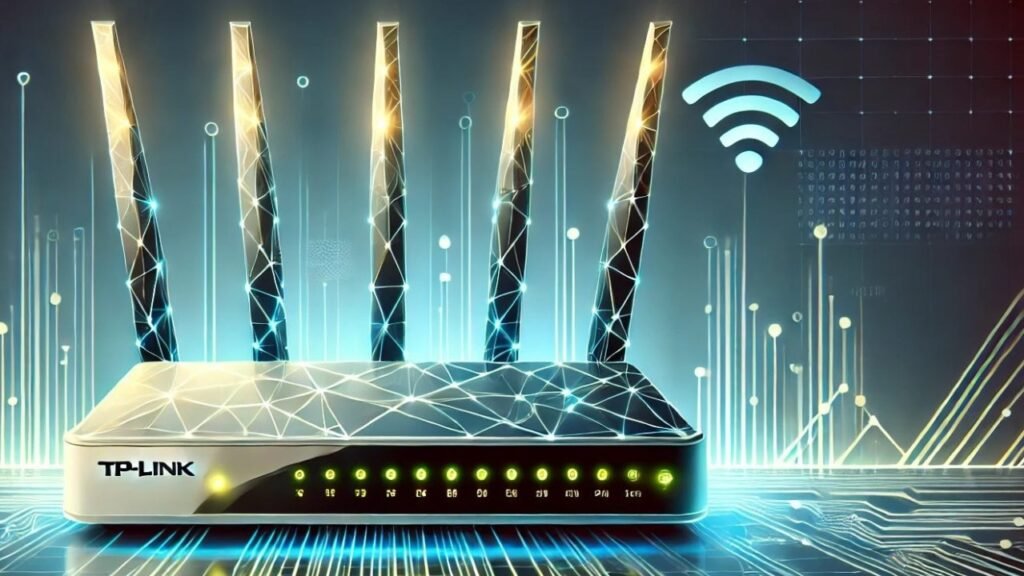The Silent Threat: How China-Made TP-Link Routers Could Compromise National Security


The topic “China-Made TP-Link Routers Could Pose a National Security Risk” is an important issue regarding the potential vulnerabilities in networking equipment, particularly those made by Chinese companies. TP-Link is a popular manufacturer of consumer networking devices. Here are some statistics that provide a sense of their market presence.
Market Share: TP-Link is among the top 3 global networking device brands, alongside Netgear and Linksys, holding around 30-35% of the consumer Wi-Fi router market in the U.S. as of 2023. This makes TP-Link one of the most widely used brands in American homes.
Home Users: TP-Link is very popular in the U.S., with estimates suggesting they are in millions of households nationwide. One estimate from 2021 suggested TP-Link’s routers could be in use by over 10 million households in North America
Business Use: TP-Link’s business networking products, including switches, access points, and enterprise-grade routers, are also widely used in small to medium-sized businesses (SMBs). Their products are sold through major retailers, wholesalers, and online platforms, giving them broad reach within the business sector. TP-Link has partnerships with large retailers like Best Buy, Walmart, and Amazon, where their business solutions are frequently offered
The TP-Link has recently faced scrutiny due to the geographical concerns surrounding Chinese technology companies and national security. The widespread concerns from Western governments stem from the fears that the Chinese government could leverage Chinese tech companies to gather intelligence or disrupt networks for espionage or other national security threats. The Key Concerns:
Backdoor Access:
- Backdoors are hidden ways for an attacker to bypass regular authentication and gain unauthorized access to a device. These TP-Link routers could potentially, allow malicious actors to access private data, spy on network activity, or even take control of the router for larger-scale attacks.
Firmware Vulnerabilities:
- As a core piece of home and enterprise networks, Routers run firmware, which is the software embedded within the router’s hardware. Certain vulnerabilities in the firmware can be exploited by hackers, allowing them to exploit the device- taking over the network.
- Security experts worry that during TP-Linker updates, the newly downloaded patches could be compromised or altered by unauthorized third parties or even by the manufacturer itself if state actors force it. *A state actor in cybersecurity is a government or a government-backed group that uses the internet to carry out cyberattacks or espionage, usually to help the country’s interests.
Data Exfiltration Risks:
- If Chinese-made routers are compromised, they could serve as a channel for data exfiltration. Hackers could use routers to silently capture and transmit sensitive information back to a main server, bypassing all traditional cybersecurity defenses.
Influence of Chinese National Laws:
- The Chinese National Intelligence Law requires all Chinese companies to cooperate with intelligence agencies. Given this, there is a legitimate concern that TP-Link routers, which are produced in China, might be subject to such scrutiny and could be used as tools for espionage.
The U.S. Government has already blacklisted several Chinese tech companies (including Huawei and ZTE) due to concerns over national security and espionage risks. This has led to a broader scrutiny of Chinese-made products.
The issue of Chinese-made routers posing potential national security risks, including TP-Link devices, is a complex and ongoing debate. While TP-Link itself is a reputable brand, concerns about backdoors, firmware vulnerabilities, and the potential influence of Chinese government laws make it an area of increasing scrutiny. Organizations and individuals who rely on these devices need to stay vigilant, regularly update their firmware, and implement robust cybersecurity measures to protect their networks.
If you work for an enterprise or government, it’s important to assess the risks of using Chinese-made networking equipment and take proactive steps to secure your network from any potential threats. Similarly, individuals should be mindful of security best practices to ensure their home networks remain sec


